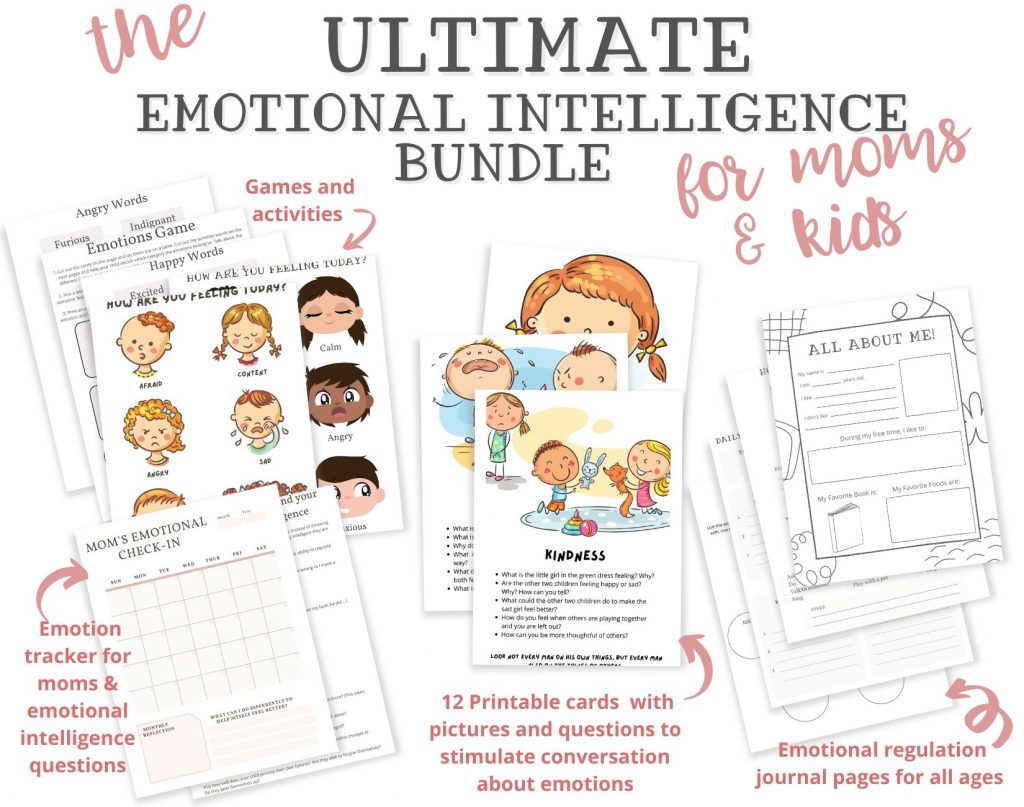How to Bond with your Child

As a parent it’s easy to get caught up in just getting the basics done for your kids, and overlooking their need for connection with you.
It’s important to do more than provide food, shelter, education, and clothing.
Your kids need a healthy emotional connection with you in order to develop into a balanced person who is able to build solid relationships with others.
Benefits of connection with your kids
There are multiple reasons to build connection with your kids:
- Connection increases self-esteem because the child knows he is loved and valued.
- It increases security and a secure child will act out less, and be more confident.
- Connection lessens the need for discipline because your child is getting positive attention. (This one’s a winner!)
- Being connected with your child makes them easier to manage because you have built relationship, and they feel connected and understood.
- Connection increases happiness and satisfaction for both you and your child.
How to bond with your child
Now that you’re convinced you need connection with your child, let’s look at how to get closer to your kids and build connection with them.
As a parent it’s up to you to initiate intentional connection with your child.
This doesn’t require hours and hours of time. Here are some easy ways to bond with your child:
Pray together
Build unity through prayer. Cohesiveness is strengthened and closeness fostered when we pray with and for our kids.
Prayer can encourage a stronger family bond.
If your kids are grown and flown, you can still do this by asking “How can I pray for you today?” (This could work for teens too.)
Eat meals together
In the busy, rushed lives we live, families often skip eating together because of routines and schedules.
Be intentional about planning to eat at least one meal together a day.
Use this time to talk about your day, ask open-ended questions, or discuss current events.
Play a game together
Kids love to play. This will look different for every family. Some will enjoy physical, adventurous games, others will enjoy quieter pursuits like board games (these can be pretty rowdy too!).
Brainstorm ideas as a family, and try different things. Wrestle, have piggy back rides, swing them, chase them, play hide and seek, play the board game.
Read a story
This was one of the most bonding things we did as a family – we read dozens and dozens of books – some of them multiple times.
Our kids often begged for “just one more chapter”. We have so many memories of the books we have read together.
Related: Family time ideas
Hug for 20 seconds
Physical affection is important – we all need hugs. Make a point of hugging your child every day – even multiple times a day.
Be sensitive to your child’s tolerance or interest in physical affection. Some may need a more gentle approach – ruffle their hair, give a side hug, or give their shoulders a gentle squeeze.
Give undivided attention
Make a point of spending individual time with each of your kids. This will make them feel loved and valued.
Related: How to make your child feel loved and valued
Empathise with strong emotions
Everyone needs to be understood. Take time to help your child work through strong emotions.
Related: How to teach your child emotional regulation
Get the Ultimate Intelligence Bundle and use games and activities to teach your child emotional regulation in a fun way! Click the image below.
Tell each other jokes
Laughter creates connection. Lighten up a bit and tell your kids a joke. Encourage them to share funny things they see or hear.
Make use of bedtimes and wake-ups
Bed times bring closure to the day and morning set the tone for the day.
Crawl into your child’s bed with them and chat about their day or take a few extra moments at bedtime to answer their questions, listen to their story, or soothe their fears.
In the morning, greet your child cheerfully, smile, and give them a hug to start the day well.
Ask questions about things they’re interested in
Showing an interest in things your kids are interested in will make them feel understood and connected with you.
Figure out what makes them tick, what they love, what their dreams are.
Work together
Accomplishing a task together is a great way to bond with your child. If working together doesn’t happen naturally, then create opportunities for working together.
Ask how their day was
Instead of asking “How was your day?”, which creates space for one-word answers or grunts, ask your child, “What was one good thing and one not-so-good thing about today?”
Create family traditions
Shared family memories increase family bonding.
We build memories by creating traditions. Activities and celebrations that are repeated each year reinforce the family history and memories.
So create some new traditions and repeat some old ones.
Tell what you love about them
Tell your child what you appreciate, enjoy, and value about them.
Do you like how responsible they are? Their personality? Their sense of humour? Their ability to remember details?
Let them know you see and value their uniqueness.
Have a family appreciation night
During one of your family nights sit down as a family and let each one write down the things about each family member that they value, enjoy, or like. Then read them out loud.
This is a great way to bond as a family.
Tell family history stories
Knowing where you come from, understanding your heritage, and remembering the interesting or funny stories is a great way to get closer to your kids.
Give a hand or foot massage
This takes just a few minutes but will make your child feel special and connected to you.
Do something challenging together
We all know that soldiers create a powerful bond due to the hardships they endure together.
Find a way to harness this and tackle something challenging together as a family – climb a mountain, camp in bad weather (we did this, not by choice though!), or complete an obstacle course.
Affirm them
Your words have power to break down or build up. Be intentional about using yours to build your children up. Instead of giving empty praise, give true affirmation.
For a list of ideas, download the list of affirmations for younger and older children by filling in the form below.
There are many small ways you can connect with your children. I encourage you to be intentional about building your family bond and creating a tight-knit family unit.




Leave A Comment